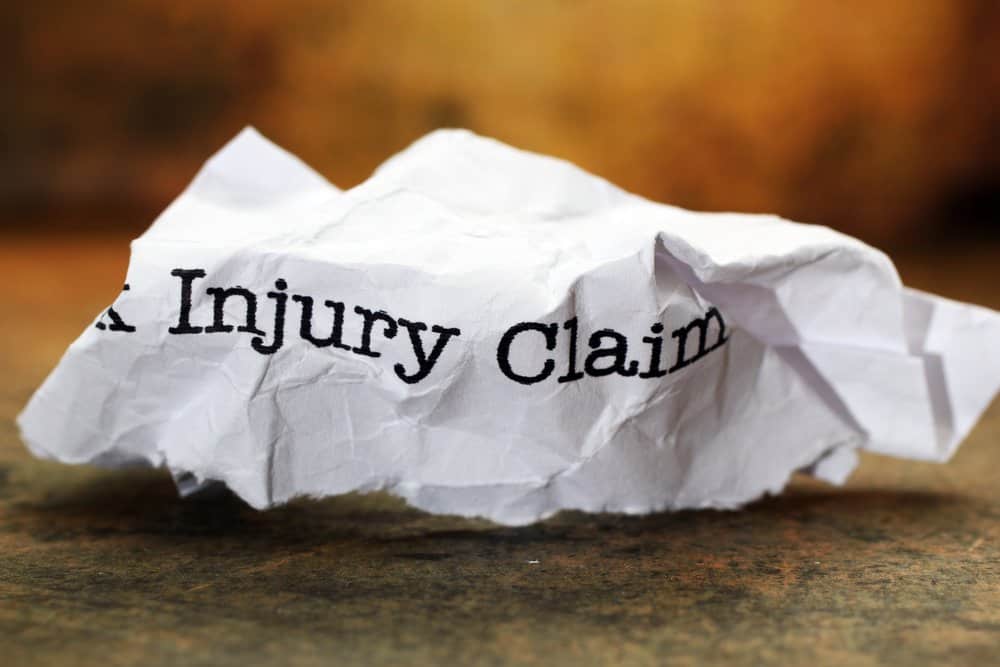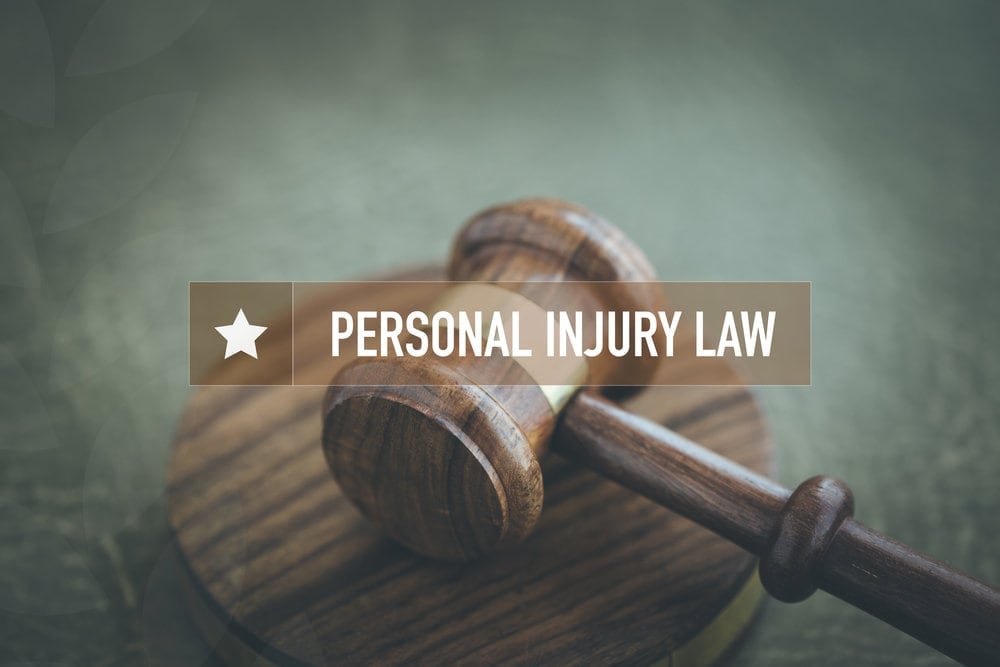Personal injuries can happen unexpectedly, and when they do, the victims may find themselves in overwhelming situations. The pain and suffering, medical bills, and lost wages can significantly disrupt their lives.
In such scenarios, individuals should consider seeking the help of an experienced personal injury attorney. A knowledgeable legal representative can guide victims through the complex litigation process to ensure their rights are protected and they receive the compensation they deserve.
Personal injury cases can be encountered, including car accidents, slip and fall incidents, defective products, and workplace injuries. Residents must know their legal options, the various steps in seeking representation, and the importance of selecting a highly qualified and experienced lawyer. Choosing the right attorney can greatly affect the case’s outcome and the victim’s recovery process.
Key Takeaways
- A personal injury attorney is essential for navigating the complicated litigation process.
- Various personal injury cases may arise, making it crucial to find the right lawyer with relevant experience.
- Understanding the steps in seeking representation can help victims make informed decisions and access necessary resources.
Types of Personal Injury Cases
Personal injury cases arise from various circumstances. These cases involve an injured party seeking compensation for harm caused by another party’s negligence or intentional actions. Some common types of personal injury cases include:
Wrongful death: This type of case occurs when the negligence or wrongful act of a party results in the death of another person. Family members of the deceased can seek compensation for their loss, including medical expenses, funeral costs, and loss of companionship.
Car accidents: Car accidents are a prevalent cause of personal injury cases. They can result from driver negligence, reckless driving, or driving under the influence. Victims in car accidents might suffer physical injuries, emotional distress, or property damage and can seek compensation from the at-fault driver.
Truck accidents: Similar to car accidents, truck accidents involve collisions between a large commercial vehicle and another vehicle or pedestrian. These accidents often cause severe injuries due to the size and weight of trucks. Causes of truck accidents can include driver fatigue, drug or alcohol use, and equipment failure.
Motorcycle accidents: The nature of motorcycles makes riders more vulnerable to injuries during accidents. They often result from poor visibility, failure to observe traffic rules, or driver inattention. Injured motorcyclists can hold the at-fault party responsible for their damages.
Dog bites: An owner’s failure to control or supervise their pet can lead to a dog attack, resulting in bites and injuries. The injured party can sue the dog owner for damages, such as medical expenses and pain and suffering.
Establishing fault, causation, and damages is critical for a successful outcome in all these types of personal injury cases. Legal representation by a skilled attorney can help navigate the complexities of these cases and ensure appropriate compensation for the injured party.
Searching for a Lawyer
When searching for a personal injury lawyer it’s important to consider certain factors to ensure you find the best representation to handle your case. Begin your search by looking at reputable online platforms such as lawyer directories and websites like Avvo. These resources provide extensive information on various lawyers and their practice areas, making it easier to make an informed decision.
It’s essential to read reviews and testimonials from previous clients. Their experiences can give you valuable insights into the quality of legal services provided by a particular lawyer. While considering these reviews, consider the lawyer’s communication skills, professionalism, and success rate in personal injury cases.
Another factor to consider is the lawyer’s experience and track record in handling personal injury cases. Working with a lawyer with experience and knowledge of the local laws and regulations can significantly impact the outcome of your case.
Don’t hesitate to schedule consultations with potential lawyers. During these meetings, make sure to ask about their experience in personal injury cases, their strategies, and their fee structure. It’s crucial to find a lawyer with whom you feel comfortable discussing your case and who demonstrates a clear understanding of your legal needs.
To simplify your search, consider creating a list of potential lawyers and narrowing it down based on the factors above. Always trust your instincts and choose a lawyer who will prioritize your best interests throughout the legal process.
Legal Services Offered
Personal injury lawyers provide legal services to clients who have suffered from accidents or injuries due to another party’s negligence. They are experienced and knowledgeable in medical malpractice, criminal defense, and estate planning cases.
Personal injury lawyers work diligently to handle cases of various related practice areas, including:
- Automobile accidents
- Slip and fall accidents
- Dog bites
- Defective products
In addition to personal injury cases, these legal professionals are equipped to support clients with bankruptcy matters. They help individuals navigate the complexities of bankruptcy laws and processes to achieve financial stability.
When representing clients in personal injury cases, attorneys work on a contingency fee basis. This means that they only collect fees if they successfully recover compensation for their clients. Their primary goal is to ensure their clients receive the highest compensation for their physical, emotional, and financial losses.
Personal injury lawyers are dedicated to providing clear, neutral, and comprehensive legal advice to their clients. They take the necessary steps to gather evidence, negotiate with insurance companies, and litigate cases in court when needed. In doing so, they strive to secure favorable outcomes for their clients, prevent future negligence, and promote safety within the community.

The Consultation Process
When seeking help for a personal injury case, starting with a free consultation is essential. The consultation process serves as the initial stage in gathering information about the case and determining if there is a viable claim.
In the first meeting, a knowledgeable and confident attorney listens to the details of the incident, reviews any evidence, and asks relevant questions. Clients should come prepared with necessary documents, such as medical records, photos, and accident reports, to clearly understand the situation.
During the consultation, the attorney evaluates the strengths and weaknesses of the case. They offer a neutral and clear assessment of its merits, discussing potential outcomes, required legal steps, and anticipated time frames. This is an excellent opportunity for clients to ask questions and address concerns.
Moreover, the consultation helps establish a rapport between the client and the attorney. This professional relationship is vital for open communication and effective representation. By the end of the consultation, clients should feel informed and confident in their decision to pursue legal action.
Remember, a free consultation is designed to provide guidance and information for those seeking help in personal injury cases. It is a crucial step in understanding the legal options available and choosing the right course of action for a successful outcome.
Experience and Credentials
Personal injury attorneys have extensive experience handling cases involving accidents and injuries. These legal professionals are licensed and stay updated with the latest developments in personal injury law to ensure the best possible outcome for their clients.
Many of these attorneys have years of experience working with clients who have suffered injuries from vehicle accidents, workplace accidents, and medical malpractice, among other incidents. Their expertise allows them to craft strong arguments and easily navigate complex legal procedures.
Some personal injury attorneys have been recognized as Super Lawyers, awarded to those who consistently demonstrate excellence in their practice. This recognition highlights their dedication and commitment to serving their clients effectively and ethically.
In addition to their practical experience, these attorneys typically hold impressive educational credentials. They have graduated from prestigious law schools and are members of respected legal organizations. Furthermore, they often engage in continuous legal education to stay current with any changes in the law.
Professional affiliations, such as membership in a State Bar Association or the American Association for Justice, attest to attorneys’ commitment to upholding high standards within their field. These affiliations also provide resources and opportunities for personal injury attorneys to connect with other professionals, share information, and stay informed on best practices.
When seeking legal representation for a personal injury case, it is essential to consider the experience and credentials of the attorney to ensure a positive outcome.
Fees and Payment
Personal injury attorneys typically charge fees on a contingency basis. This means that clients do not pay upfront costs; the attorney will receive a percentage of the compensation awarded when the case is resolved. The percentage of contingency fees can range from 25% to 40%, depending on the case’s complexity and the attorney’s experience.
Some law firms may offer a free consultation to discuss the specifics of your case and help determine if pursuing legal action is right for you. During this consultation, potential clients can inquire about the attorney’s contingency fee percentage and any additional expenses that may be incurred throughout the case.
Expense Policy: It is essential to understand that apart from the contingency fee, there might be other expenses related to the case. These can include filing fees, witness fees, or expenses related to obtaining medical records. Some personal injury law firms will cover and deduct these costs from your awarded compensation, while others may require you to pay them upfront. Discussing the expense policy with your attorney is crucial to understanding your financial responsibility.
Attorneys are required by most State Bar Associations to disclose their fee structure in a written agreement before representing you in your personal injury case. This agreement should ideally lay out the contingency fee percentage, which expenses the law firm will cover, and the client’s responsibility for reimbursing those expenses.
It is recommended to carefully review your attorney’s fees and payment structure before proceeding with a personal injury case. Remember that the attorney’s experience, success rate, and familiarity with the legal landscape may impact the outcome of your case.
The Settlement and Trial Process
The personal injury settlement and trial process typically begins with the parties negotiating a settlement. They may do this directly or with the help of their respective legal representatives. During these negotiations, both parties will present their damages, medical expenses, lost wages, and other relevant factors to reach a fair resolution.
If the parties cannot agree through the settlement process, they may proceed to trial. During the trial, a judge or jury will hear arguments from both sides, review the evidence, and determine the liability (fault) of the defendant. In some cases, the jury may also determine the compensation the plaintiff is entitled to.
There are some important steps in the trial process:
- Discovery: Before the trial, both sides will participate in the discovery process to gather information and evidence about the injury and any contributing factors. This may include interrogatories, depositions, and requests for documents.
- Motions: Before the trial, the parties may file various motions, such as motions to dismiss or motions for summary judgment, which seek to resolve the case without going to trial. The judge will rule on these motions, and the case may come to a close without a trial if granted.
- Trial: If the case proceeds, both parties will present their evidence and arguments to a judge or jury. Each side will also have the opportunity to cross-examine witnesses and challenge any evidence the opposing party presents.
- Jury Deliberation & Verdict: After the trial, the jury will determine liability and the appropriate compensation for the plaintiff if the defendant is found liable.
- Appeals: If either party is unsatisfied with the trial’s outcome, they may have the option to appeal the decision. The appeals process can be lengthy and is not guaranteed to result in a different outcome.
Throughout the settlement and trial process, those involved in a personal injury case must have knowledgeable legal representation to protect their best interests and navigate the complex legal proceedings confidently and clearly.

Dealing with Insurance Companies
When dealing with insurance companies after a personal injury it is important to remain composed and well-informed. Insurance companies may seem intimidating, but understanding their role and your rights can lead to a more favorable outcome.
In the aftermath of an injury, it’s crucial to document and gather as much information as possible. This includes photographs of the accident scene, witness statements, and any other relevant information that can help support your claim. This documentation can prove highly valuable when presenting your case to the insurance adjuster.
In your interactions with insurance companies, it’s important never to admit fault. While apologizing or accepting blame may feel natural, doing so can significantly impact your claim. Instead, focus on providing an accurate and factual account of the events.
When negotiating with insurance adjusters, remember that their primary goal is to save their company money. They may try to minimize your injury and its impact on your life. Remember that you can negotiate your claim and seek fair compensation for your injuries. Though the adjuster will likely present a settlement offer, it may not adequately cover your medical expenses, lost wages, and other damages. You can decline or counter the offers made until you reach a satisfactory agreement.
When dealing with insurance companies, consider consulting with a personal injury lawyer. They have the knowledge and experience to navigate complex negotiations, anticipate potential pitfalls, and ensure a fair outcome. Remember, you do not have to handle your claim alone; legal professionals can provide valuable support and guidance.
When dealing with insurance companies after a personal injury it’s essential to be prepared with documentation, maintain a clear perspective, and seek legal assistance if necessary. Doing so can increase the chances of receiving the compensation you deserve.
Resources and Language Support
Various resources are available to those dealing with personal injury cases. These resources provide assistance and guidance throughout the process, ensuring that individuals receive adequate support and information.
Various translation services are available in the area for individuals needing language support. These services cater to multiple languages, making navigating their personal injury cases easier for non-English speakers. Additionally, some legal firms specialize in providing bilingual services, accommodating individuals who require assistance in their native languages.
Online resources are also available, such as legal websites and forums, where individuals can find reliable information about personal injury cases and connect with professionals in the field. These resources can be particularly helpful for those who prefer to gather information and explore options remotely. From translation services to specialized legal firms and nearby support groups, individuals can be confident in their ability to navigate the process clearly and knowledgeably.
Client Complaints and Policies
Addressing client complaints is crucial to any personal injury law practice. Law firms in this area prioritize efficient complaint handling to ensure clients receive the best possible service. Policies related to complaints handling should reflect transparency, professionalism, and responsiveness.
To maintain high client satisfaction, firms develop clear policies for addressing complaints, outlining the steps taken to resolve any issues. Clients typically expect the firm to:
- Acknowledge their complaint promptly
- Investigate it thoroughly
- Provide a timely and satisfactory resolution
In some cases, complaints may arise from misunderstandings, while others could be due to delays in the legal process, miscommunication, or any other service-related issue. Law firms must be prepared to handle all complaints with a neutral and empathetic approach.
Additionally, law firms are encouraged to provide clients with an accessible feedback mechanism, such as email or dedicated complaint helplines. This allows clients to voice their concerns easily and allows the firm to rectify any issues promptly. Implementing these practices establishes trust and loyalty among clients.
It’s essential for personal injury law firms to continuously review and update their complaints handling policies, ensuring they remain relevant and effective. By maintaining a confident, knowledgeable, neutral, and clear approach when dealing with complaints, these firms can better serve their clients and uphold their professional reputation within the community.


